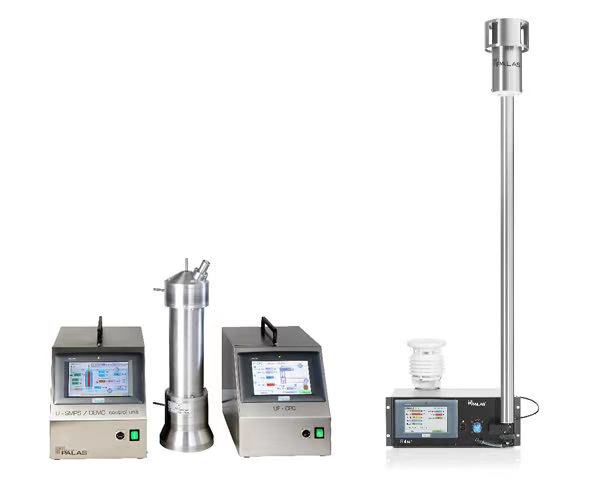In 1983, Nankai University (NKU) established the Department of Environmental Science and made important contributions to the development of Environmental Sciences and the early development of undergraduate education in Chinese higher education institutions. In 1998, NKU first established the College of Environmental Science and Engineering in China. With the support from NKU, the State Environment Protection Key Laboratory of Urban Particulate Air Pollution Prevention was officially founded in 2007 and NKU Air Quality Research Supersite afterwards in 2017. We talked to a researcher from the research supersite, which has recently purchased the Palas® particle size spectrometers getting the view from an academic institution on Palas® instruments.
For what needs did Nankai University purchase a particle size spectrometer?
We bought a particle size spectrometer mainly for scientific research purpose. Back then, the laboratory still lacked instruments to measure the particle size distribution below PM2.5. As an atmospheric observation station, we needed to observe the particle size distribution and its trend. In addition, research groups and students in the college often have certain needs for experimental data when writing papers. Combining the wishes of all, we found that the particle size spectrometer has become one of the essential instruments in the college’s scientific research projects.
How did you get in contact with Palas®?
After we determined the purchase requirements of the laboratory, professionals in the environment industry recommended Palas®, the German expert in aerosol analysis and monitoring industry. In the name of NKU Air Quality Research Supersite, we purchased Palas® SMPS and Fidas® 200 from the distributor.
 Palas® SMPS和Fidas® 200
Palas® SMPS和Fidas® 200
Why did you choose Palas®? What do you appreciate Palas® most over all the other competitors?
Before we finally chose Palas®, we conducted a thorough market research. We found that Palas® is widely used in foreign markets with various types of well-developed products and a good reputation in the industry. Combined with the opinions from the site, the research team, and the students, we believe that the Palas® instrument can satisfy our needs for rigorous scientific research.
After the purchase of the instrument, what kind of technical support did Palas® provide?
I am very pleased that Palas® was able to send technicians to provide us with the on-site installation and operation instructions after we purchased Palas® SMPS and Fidas® 200. Also, they introduced us in detail the operational procedures and precautions for the use of the instruments, as well as the daily maintenance and many other related information. In our daily use, the Palas® after-sales service team always respond promptly and quickly with effective solutions for our problems and confusion, which makes us feel very secure.

Are you satisfied with the operation of the Palas® instruments?
From our actual experience, the Palas® instruments are very user-friendly. For the most important function of the instrument, that is, the test itself, we use the instrument to monitor the trends of both particle concentrations and particle size spectrum. The measurement process is fast, and the results are accurate, which makes us very satisfied. In our actual operations, compared to the other instruments we have used in the past, Palas® products are much more stable and easier to operate. The presentation of data is quite intuitive and clear at a glance. Not only that, the subsequent maintenance of the Palas® instruments is also very simple.

Did Palas® help your research?
Of course. For the subsequent data processing, Palas® specially designed software to export data and analyze. After the measurement, the data export can be completed simply by using only an USB drive, which is very convenient. Palas® data analysis software can help us study the trend of particle size spectrum afterwards. Palas® has successfully helped us solve the problem of particle size spectrum detection. We hope that Palas® can continue to produce more high-quality, precise, and cutting-edge environmental monitoring instruments in order to meet the diversity and accuracy of research needs.

With Palas® SMPS and Fidas® 200, the number and distribution of particles ranging from 7nm to 18µm can be measured real-time online.
In the Palas® office in Shanghai, Palas® installed a demo lab in which you can check the functions of the Fidas® 200. Either you come in person or Palas® set up a video call and Palas® experts show you the functionalities of this test rig online in a live session.
Make an appointment today.
Contact us via
Phone: +86 400 – 784 – 6669
Email: info@palas.com.cn

